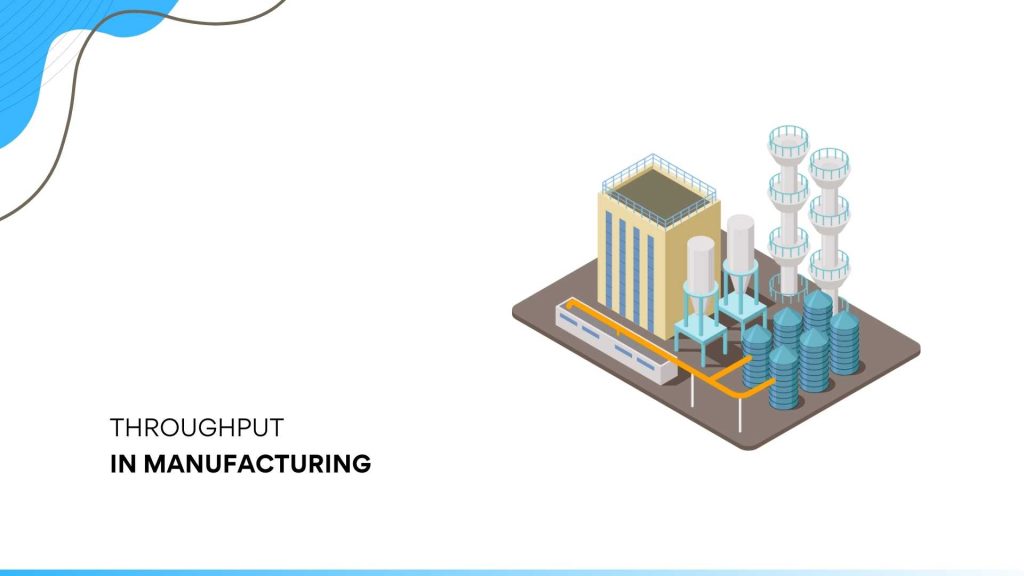In manufacturing, optimizing throughput is crucial for maintaining competitiveness, meeting demand, and ensuring profitability. Throughput, the rate at which a system produces its products, is a key indicator of efficiency and productivity. Manufacturers often employ various strategies to bolster this essential metric to refine processes, enhance productivity, and streamline operations. Here, we’ll delve into six effective ways to amplify throughput in manufacturing:
Review Your Existing Workflow
Efficiency begins with understanding your current workflow. Conduct a comprehensive assessment to identify inefficiencies, redundancies, or areas prone to delays. This evaluation should encompass every stage of the production cycle, from raw material assets to final product delivery. Utilize data analytics, process mapping, and feedback from frontline workers to gain a holistic view.
Eliminate Bottlenecks
Bottlenecks can significantly impede throughput. Pinpoint and address these bottlenecks swiftly. Whether it’s a resource constraint, inefficient equipment utilization, or a bottleneck caused by the layout of the production floor, devising strategies to mitigate these constraints is vital. Consider redesigning processes, reallocating resources, or implementing agile methodologies to ensure smoother workflow continuity.
Reduce Equipment Downtime
Unplanned equipment downtime can drastically hamper production rates. Implement preventive maintenance schedules, leverage predictive maintenance technologies, and train staff to conduct routine equipment checks. Proactive measures decrease downtime and extend the machinery’s lifespan, ultimately enhancing overall operational efficiency.
Reduce Parts Rejection Rate
Minimizing the rejection rate of manufactured parts is pivotal in maintaining high throughput. Employ quality control measures, integrate real-time monitoring systems, and invest in advanced inspection technologies. Identifying and rectifying quality issues early in production can curtail rework and enhance output efficiency.
Improve Employee Training
A well-trained workforce is fundamental to efficient manufacturing. Offer continuous training programs to enhance skill sets, improve familiarity with machinery, and impart knowledge about evolving industry standards. An empowered workforce is more adept at handling complex tasks, troubleshooting issues, and contributing to a seamless production process.
Use Factory Automation
Integrating automation technologies can significantly bolster throughput by streamlining repetitive tasks, reducing errors, and enhancing efficiency. Implement robotics, AI-powered systems, and smart manufacturing technologies to automate routine processes. Automation expedites production and allows human resources to focus on more intricate tasks that require creativity and critical thinking.
Amplifying throughput in manufacturing necessitates a multifaceted approach. Manufacturers can significantly enhance their throughput capabilities by meticulously assessing workflows, optimizing resources, prioritizing quality, investing in employee development, and leveraging technological advancements. Continuous refinement and adaptation to emerging trends are key to staying ahead in today’s competitive manufacturing landscape.
conclusion
Acumatica ERP stands as a transformative solution, poised to revolutionize manufacturing efficiency. Through its integrated approach, Acumatica offers a comprehensive suite of tools that streamline processes, optimize resource allocation, and provide real-time insights into every facet of manufacturing operations.
By seamlessly connecting different departments, enabling data-driven decision-making, facilitating resource planning, and offering scalable solutions, Acumatica ERP empowers manufacturing enterprises to enhance throughput significantly.
Its ability to centralize information, automate repetitive tasks, and adapt to evolving industry demands positions Acumatica as a catalyst for driving operational excellence and fostering continuous improvement in the manufacturing sector.

Vijay comes with a vast experience in ERP and enterprise solutions space with about 20 years of experience in various packaged application like Acumatica, SAP, Orion, Salesforce.com, SugarCRM and, SalesLogix.

